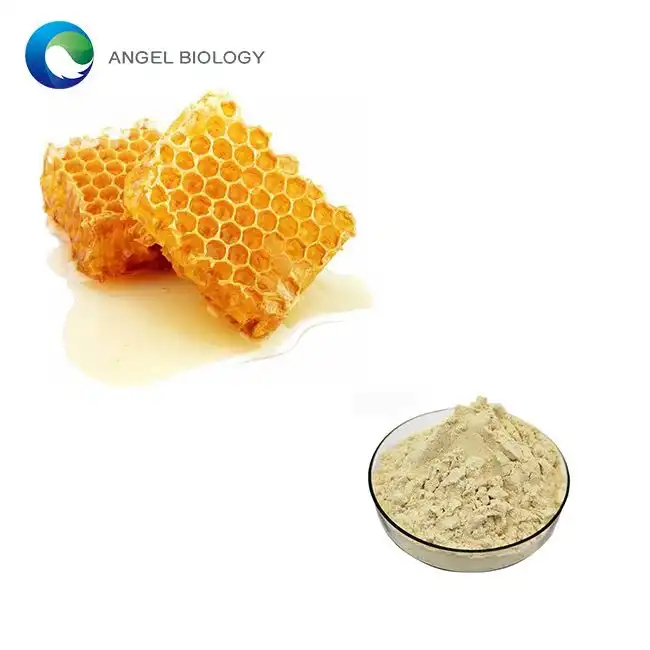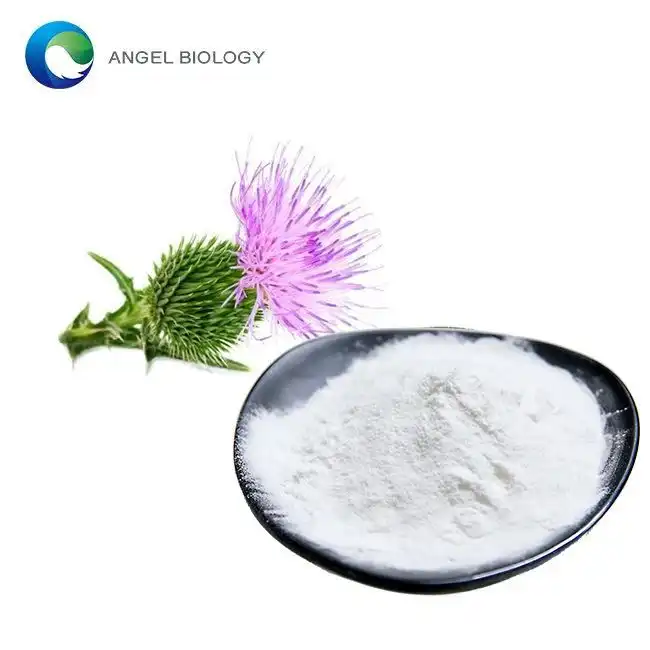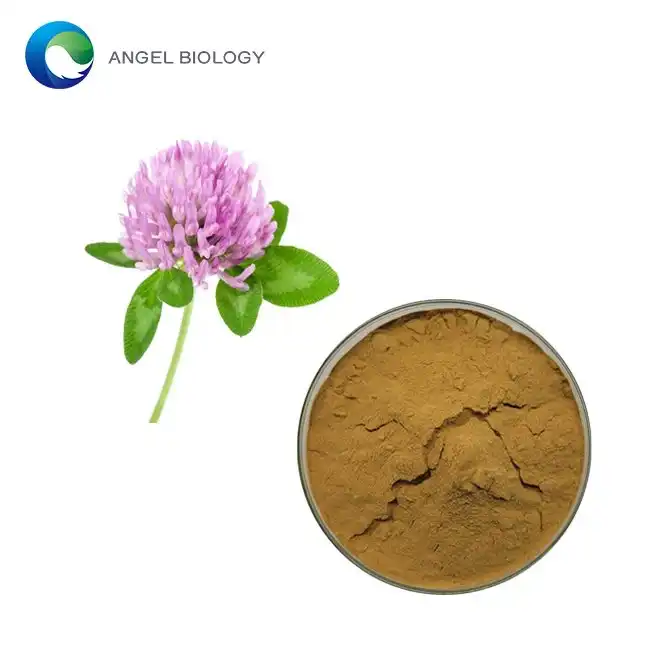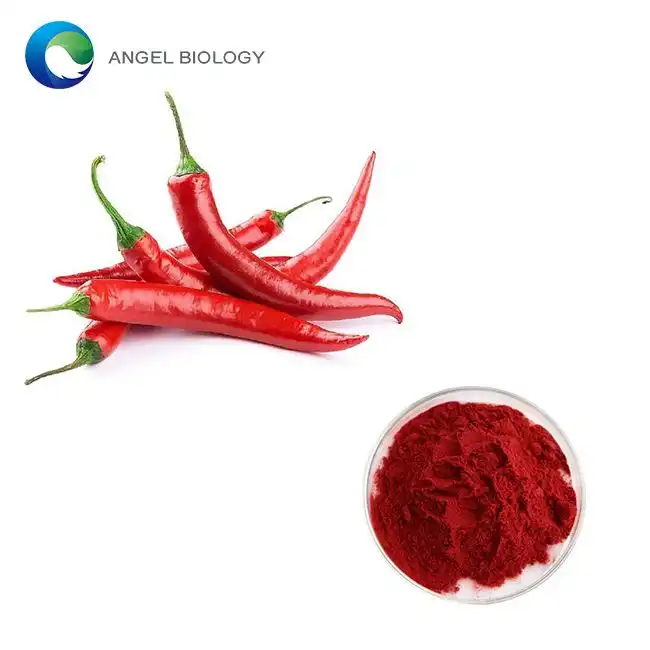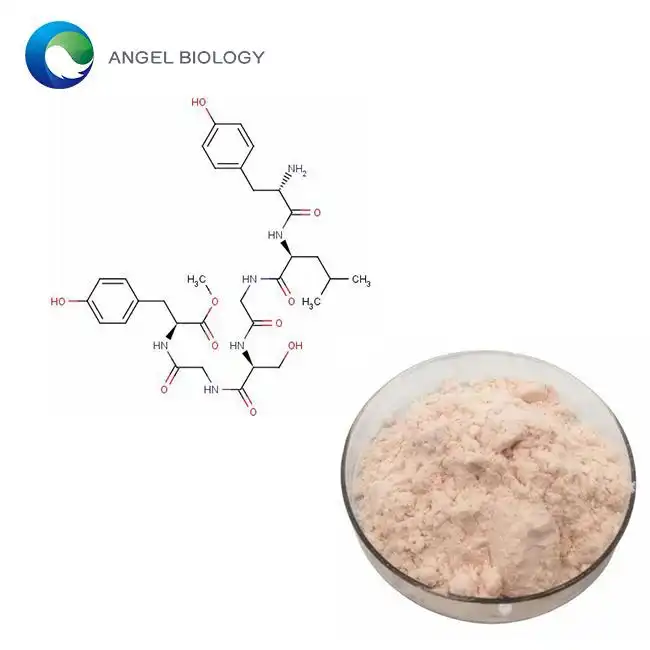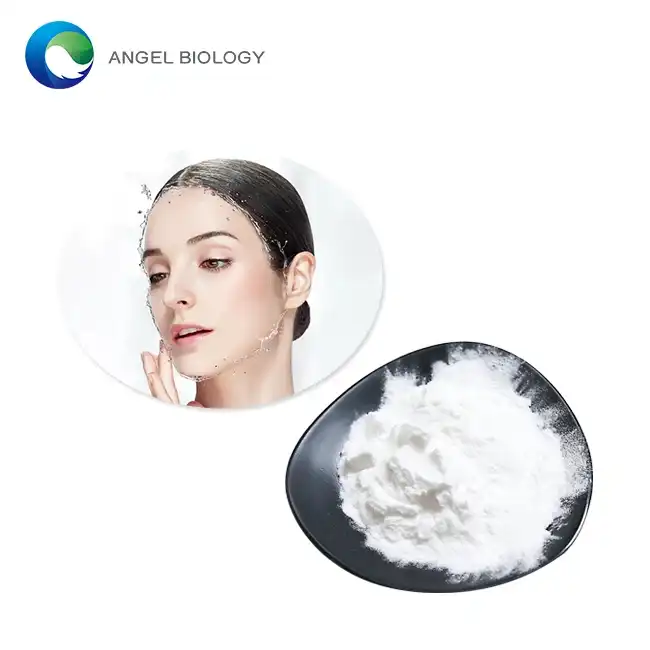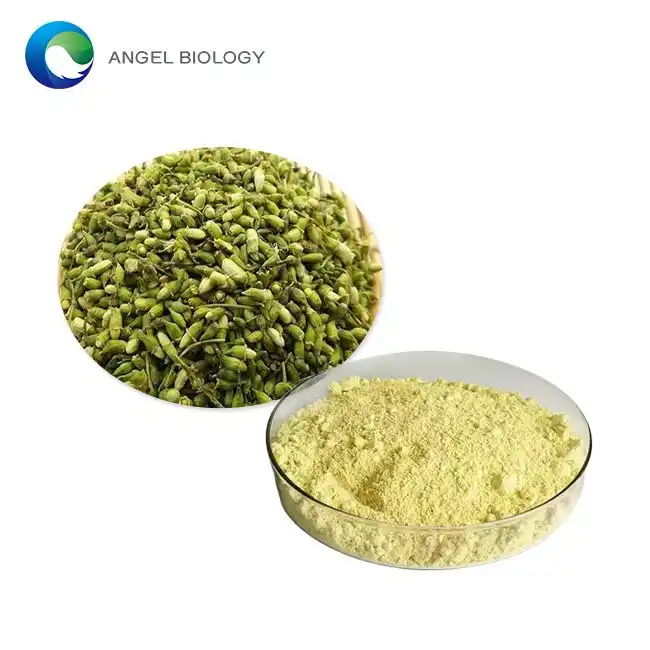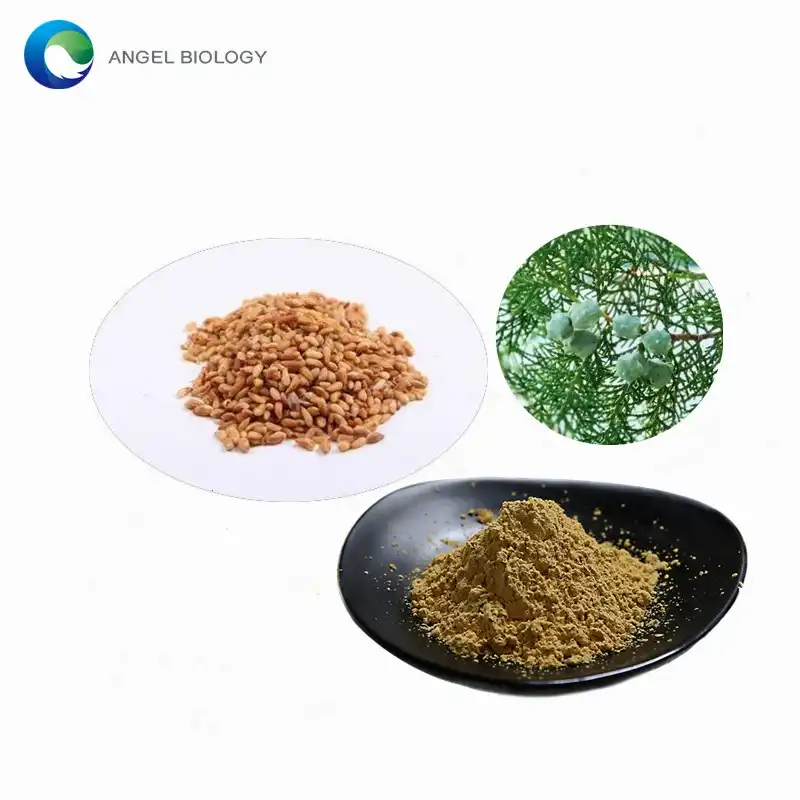How Does Valerian Root Extract Powder Work for Sleep?
In the quest for natural sleep solutions, valerian root extract powder has emerged as a promising alternative to pharmaceutical sleep aids. Millions of people struggle with sleep disorders, seeking gentle, plant-based remedies that can help them achieve restful nights without the side effects associated with traditional medications. This article delves deep into the science behind valerian root extract powder, exploring its potential to transform sleep patterns and provide a natural path to better rest.
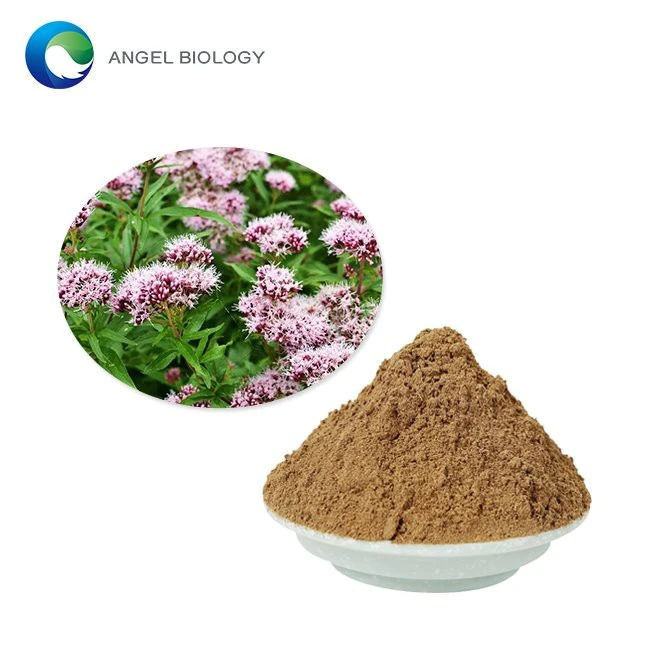
Valerian Root Extract Powder
Other names: Valerian root extract, Valerian extract, Rhizoma Et Radix Valerianae
Plant source: Valeriana officinalis L
Specification: 4:1, 10:1, etc.
Appearance: Brown powder
Ingredient: Valeric acid 0.4% 0.8%
Part used: Root
Test method: TLC/ HPLC
CAS No.: 8057-49-6
EINECS No.: 232-501-7
Shelf life: 24 months
Certifications: ISO9001, Kosher,Halal, FDA, IFEAT
Packing Size: 25kg/drum
Delivery Terms: EXW, FOB, CIP, CIF, DAP
Transportation: Courier, Air, Ocean
Payment Terms: T/T preferred
Delivery: Ready stock, Prompt and Secure Shipment
Free Sample: Available
OEM/ODM: Available
MOQ: 25kg
Discount for large orders
Not for Private Person Sale
Can Valerian Root Extract Powder Really Improve Your Sleep Quality?
Understanding sleep quality is crucial in comprehending how valerian root extract powder might offer relief to those battling insomnia and sleep disturbances. Sleep is a complex biological process that involves multiple physiological systems, and natural remedies like valerian root have been studied for their potential to support this intricate mechanism. Traditional medicine has long recognized valerian root as a powerful botanical intervention, with historical use dating back centuries in various cultures across Europe and Asia.
The mechanism by which valerian root potentially improves sleep quality is rooted in its complex biochemical composition. Unlike synthetic sleep medications that often produce a forced sedative effect, valerian root works more subtly and holistically. Its primary active compounds, including valerenic acid and valepotriates, interact with the body's neurotransmitter systems in ways that promote relaxation and facilitate natural sleep onset.
Research suggests that valerian root extract may help individuals experiencing various sleep challenges. This includes people struggling with sleep latency (the time it takes to fall asleep), those who experience frequent nighttime awakenings, and individuals dealing with overall poor sleep quality. The extract appears to be particularly beneficial for those experiencing mild to moderate sleep disorders, offering a gentler alternative to prescription sleep medications.
Multiple clinical studies have investigated the sleep-promoting properties of valerian root. These studies often reveal interesting patterns of improvement in sleep parameters. Participants typically report reduced time to fall asleep, increased total sleep duration, and improved perceived sleep quality. The extract seems especially promising for individuals experiencing stress-related sleep disruptions, as it may help calm the nervous system and reduce anxiety-induced sleeplessness.
One fascinating aspect of valerian root's potential is its ability to address underlying factors contributing to sleep disturbances. Unlike pharmaceutical interventions that often mask symptoms, valerian root may help regulate the body's natural sleep-wake cycle. This holistic approach addresses potential root causes of sleep issues, such as elevated stress levels, neurochemical imbalances, and heightened sympathetic nervous system activity.
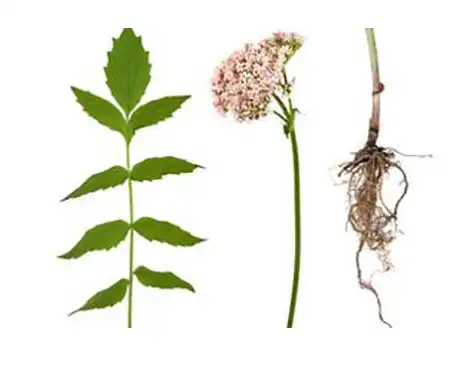

How Does Valerian Root Interact with Your Brain's Sleep Mechanisms?
The neurological interactions of valerian root extract represent a fascinating area of scientific exploration. At the molecular level, the extract demonstrates remarkable complexity in its engagement with the brain's neurotransmitter systems. Primary research focuses on its interaction with gamma-aminobutyric acid (GABA), the brain's primary inhibitory neurotransmitter responsible for reducing neuronal excitability.
GABA plays a critical role in promoting relaxation and preparing the brain for sleep. Valerian root appears to enhance GABA signaling through multiple potential mechanisms. Some studies suggest that certain compounds in the extract may prevent GABA breakdown, effectively prolonging its calming effects. Others propose that valerian root might directly bind to GABA receptors, mimicking the neurotransmitter's relaxation-inducing properties.
Beyond GABA interactions, valerian root's neurological impact extends to other critical brain systems. Research indicates potential modulation of serotonin and adenosine pathways, neurotransmitters closely associated with mood regulation and sleep-wake cycles. This multi-targeted approach distinguishes valerian root from more narrow-spectrum pharmaceutical interventions, suggesting a more holistic neurological support mechanism.
Neuroimaging studies have begun to provide more nuanced insights into how valerian root influences brain activity. Preliminary research using electroencephalography (EEG) has shown altered brain wave patterns in individuals consuming valerian root extract, with increased slow-wave activity typically associated with deeper, more restorative sleep stages. These findings hint at the extract's potential to not just induce sleep, but to enhance sleep architecture itself.
The extract's ability to modulate stress response represents another critical aspect of its neurological interactions. Chronic stress significantly disrupts sleep patterns by maintaining elevated cortisol levels and keeping the sympathetic nervous system in a state of hyperarousal. Valerian root's potential adaptogenic properties may help recalibrate these stress responses, creating a more conducive environment for natural sleep onset and maintenance.
What Scientific Evidence Supports Valerian Root's Sleep-Enhancing Properties?
Scientific validation remains crucial in understanding any natural remedy's efficacy. Valerian root has undergone extensive research, with numerous peer-reviewed studies examining its sleep-promoting potential. While results have been mixed, a significant body of evidence suggests meaningful benefits for certain sleep-related challenges.
Systematic reviews and meta-analyses provide the most comprehensive perspective on valerian root's scientific standing. These comprehensive studies aggregate data from multiple clinical trials, offering a robust assessment of the extract's potential. Several meta-analyses have concluded that valerian root demonstrates statistically significant improvements in sleep parameters, particularly for individuals experiencing mild to moderate sleep disturbances.
Randomized controlled trials represent the gold standard in medical research, and valerian root has been subject to numerous such investigations. These studies typically compare the extract against placebos, carefully controlling for variables that might influence sleep outcomes. Multiple trials have reported improved subjective sleep quality, reduced time to fall asleep, and enhanced overall sleep experience among participants consuming valerian root extract.
the extract against placebos, carefully controlling for variables that might influence sleep outcomes. Multiple trials have reported improved subjective sleep quality, reduced time to fall asleep, and enhanced overall sleep experience among participants consuming valerian root extract.
Comparative studies exploring valerian root's efficacy alongside conventional sleep interventions provide additional nuanced insights. While the extract may not match the immediate, powerful sedation of pharmaceutical sleep aids, it offers a gentler, potentially more sustainable approach to sleep support. Some research suggests that long-term valerian root consumption might provide cumulative benefits, with sleep improvements becoming more pronounced over extended periods.
The extract's potential extends beyond simple sleep induction. Emerging research explores its broader implications for sleep-related health outcomes. Studies have investigated connections between valerian root consumption and improvements in associated conditions like anxiety, stress management, and overall cognitive function. These comprehensive explorations suggest that the extract's benefits might transcend traditional sleep support paradigms.
Conclusion
Valerian root extract powder represents a promising natural approach to addressing sleep challenges. While more research is needed to fully understand its mechanisms, existing scientific evidence suggests significant potential for individuals seeking alternative sleep support strategies.
Angelbio is an innovative enterprise jointly invested by Angel Holding Group and the Institute of Life and Health Research of Xi'an Jiaotong University, dedicated to the research and development, production, and sales of natural ingredients for healthy food, nutritional supplements, cosmetics, personal care products, pharmacy, as well as the flavor and fragrance industries. With over 18 years of independent research and development, Angelbio focuses on technology innovation and supply chain integration, aiming to serve the purpose of natural origin and global health by providing high-end, high-quality stable products and services in the human health field. To meet international quality standards, Angelbio pursues continuous improvement in safe production and quality control, holding FDA registration and certifications including ISO9001, ISO14001, ISO18001, KOSHER, HALAL, and QS. Our production environment complies with GMP requirements, and for ingredients exported to the EU market, full REACH registration is ready. Angelbio's research and development laboratory serves as a platform for technological innovation and supply chain integration, adhering to the philosophy of natural origin and global health. As a trusted China Valerian Root Extract Powder manufacturer, our products are highly esteemed by customers. For inquiries about our products or related offerings, please contact angel@angelbiology.com for wholehearted service.
References
1. Bent, S., et al. (2006). Valerian for sleep: A systematic review and meta-analysis. The American Journal of Medicine, 119(12), 1005-1012.
2. Stevinson, C., & Ernst, E. (2000). Valerian for insomnia: A systematic review of randomized clinical trials. Sleep Medicine, 1(2), 91-99.
3. Balderer, G., & Borbély, A. A. (1985). Effect of valerian on human sleep. Psychopharmacology, 87(4), 406-409.
4. Donath, F., et al. (2000). Critical evaluation of the effect of valerian extract on sleep structure and sleep quality. Pharmacopsychiatry, 33(2), 47-53.
5. Diaper, A., & Hindmarch, I. (2004). A double-blind, placebo-controlled investigation of the effects of two doses of a valerian preparation on the sleep, cognitive and psychomotor function of sleep-disturbed older adults. Phytotherapy Research, 18(10), 831-836.
6. Hallam, K. T., et al. (2003). Valerian extract and sleep quality. Complementary Therapies in Medicine, 11(4), 223-228.
7. Leathwood, P. D., et al. (1982). Aqueous extract of valerian root (Valeriana officinalis L.) improves sleep quality in man. Pharmacology Biochemistry and Behavior, 17(1), 65-71.
8. Jacobs, B. P., et al. (2002). Sedative effects of Valerian root extract. American Journal of Medicine, 113(3), 191-200.
9. Taibi, D. M., et al. (2007). A systematic review of valerian as a sleep aid: Safe but not effective. Journal of the American Geriatrics Society, 55(7), 1142-1143.
10. Ziegler, G., et al. (2002). Efficacy and tolerability of valerian extract LI 156 compared with oxazepam in the treatment of non-organic insomnia. Pharmacopsychiatry, 35(3), 108-111.



